Women’s Reproductive Rights in Developing Countries.
Pillai, Vijayan K and Guang-Zhen Wang. Routledge Revivals; 1 edition (June 4, 2019). London: Routledge. (New edition of the same title published in 1999, brought out under the ‘Routledge Revival’ Editions program ). Routledge Revival series brings “out of print and unavailable titles by some of the world’s most eminent academic scholars.”
“First published in 1999, this volume represents an empirical model of reproductive rights in developing countries. The model encompasses three explanations of reproductive rights. The first proposes that reproductive rights levels are negatively related to population growth. The second explanation argues that gender equality has a positive effect on reproductive rights. Finally, the authors propose that women’s education has a positive effect on reproductive rights. The empirical model takes into account the effects of modernization, secularization, and family planning program effort on population growth, women’s education, and gender equality.”
Demography: The Science of Population (Second Edition).
Weinstein, Jay and Vijayan K. Pillai. New Jersey: Rowan and Little Field. 2016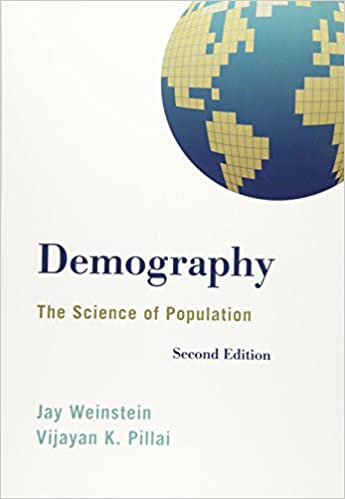
“This comprehensive, introductory text takes an applied, interdisciplinary approach. Because one author is a sociologist and the other a demographer, the text introduces perspectives from many different disciplines. The most applied book on the market, Demography: The Science of Population teaches students how to use the multitude of demographic resources available to them as consumers of data. Using case studies throughout to illustrate key concepts in a realistic and concrete manner, the authors also draw examples from recent U.S. Census data, United Nations and World Bank reports, tables from the National Center for Health Statistics, and other U.S. state- and county-level sources.” more>>
Developing Areas: A Book of Readings and Research (Explorations in Anthropology) Hardcover – Routledge (February 27, 1995) , Vijayan K Pillai (Editor), Lyle Shannon (Editor)
“With subjects ranging from the global challenge of the AIDS epidemic to the role of family planning in developing nations, and the link between Central America’s forests and North America’s hamburgers, this interdisciplinary introduction by some of the world’s foremost experts in development studies will be an essential text for courses in this area. It provides an exhaustive overview of the social, political, economic and population problems of countries in what is usually referred to as the Third World and, more recently, the Fourth World. Although colonialism is considered as a contributing factor to underdevelopment, emphasis in this volume is placed on the interrelation of major social institutions, their impact on economic and social development, and the effect of rapidly expanding industrialization on the ecosystem.”
Reproductive Health in Yemen.
T S Sunil and Vijayan K Pillai. 2010. Cambria Press: Amherst, New York.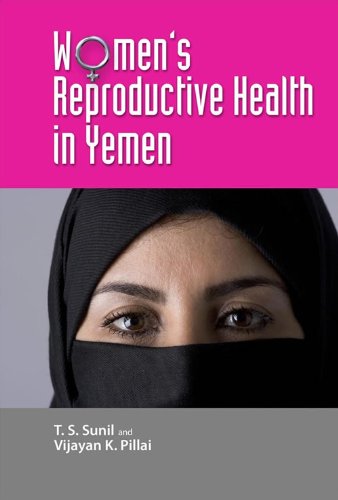
“The authors began a number of studies to learn more about Yemeni women’s reproductive health under the conditions of dire social and economic disadvantages caused by extreme poverty. This book is a compilation of the authors’ studies on Yemen and attempts to draw conclusions which would not have been possible with a single study. The book examines the reproductive health of women in Yemen. Women’s reproductive health has emerged as an area of concern among development agencies and international agencies such as the United Nations. However, theoretical models for examining reproductive health appear to lag behind the massive amount of reproductive health rhetoric in the recent years. Even though there is no uniform definition of reproductive health, we characterize reproductive health by focusing on the three components of fertility: intercourse, conception and gestation. This method directs attention to the context of reproduction in developing countries. In addition, the book reveals the previously underappreciated role of abortion in contributing to the first stages of fertility decline. The study finds that higher economic levels and improved social conditions for women do help bring about real improvements in many dimensions of reproductive health. Women’s Reproductive Health in Yemen is an important book for scholars in demography and population health.”
Democracy in Context: A Multinational Study in Micro-Economic Development. 2008. Diaz, H. L, Ramirez-Johnson, J.,Basham, R. E., & Pillai, V., K. . Marquette Books: Spokane, WA.
Strengthening Democracy Through Community Capacity Building: A Study of Four Latin American Countries, 2008, by Hector Luis Diaz (Author), Johnny Ramirez-johnson (Author), Randall Basham (Author), Vijayan K. Pillai (Author), Oystein S. LaBianca (Foreword)
“A study of four Latin American countries (Honduras, Nicaragua, Peru and Bolivia) finds that research projects sponsored by The Adventist and Relief Development Agency International are successful in promoting community development and democratic processes.”
Systematic Reviews and Meta-Analysis. Judith Little; 2008.Corcoran, Jacquelin and Vijayan K. Pillai. Oxford University Press, (Korean translation published by Soomoonsa Publishing of Gyeonggi-do.- to be in print 2011)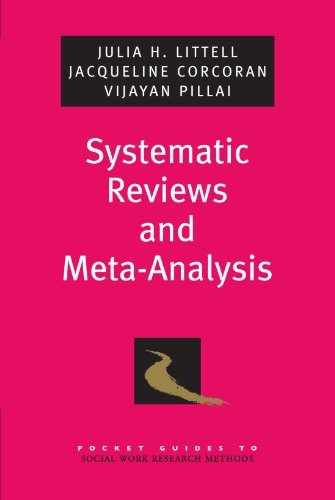
” When used in tandem, systematic reviews and meta-analysis– two distinct but highly compatible approaches to research synthesis– form a powerful, scientific approach to analyzing previous studies. But to see their full potential, a social work researcher must be versed in the foundational processes underlying them. This pocket guide to Systematic Reviews and Meta-Analysis illuminates precisely that practical groundwork. In clear, step-by-step terms, the authors explain how to format topics, locate and screen studies, extract and assess data, pool effect sizes, determine bias, and interpret the results, showing readers how to combine reviewing and meta-analysis correctly and effectively. Each chapter contains vivid social work examples and concludes with a concise summary and notes on further reading, while the books glossary and handy checklists and sample search and data extraction forms maximize the books usefulness. Highlighting the concepts necessary to understand, critique, and conduct research synthesis, this brief and highly readable introduction is a terrific resource for students and researchers alike.”
Designing Teenage Pregnancy Prevention Programs (2006). Crow,
Thomas and Vijayan K. Pillai. Lewiston: Edward Mellen.Press. 
” In 1991, five behavioral theorists were sponsored by the National Institute of Mental Health to design a strategy to curb the spread of AIDS among high risk populations. The authors of this book have used their strategy to develop a new program for the prevention os pregnancy among teenagers. This new approach, “Behavioral Performance Theory”, is described in this book.”
Communication and Education for Health Promotion and Population Regulation : A Global Perspective. Edited by Kuttan Mahadevan. Co-editors: Gao Ershang; K A Pisharoti , Vijayan K. Pillai et.al. Delhi, B.R. Pub., 2005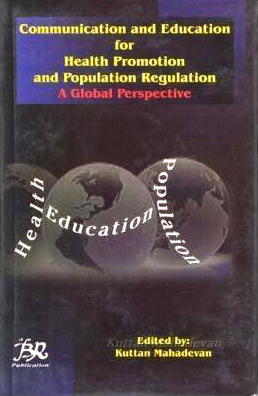
Communication, Modernization and Development. K. Mahadevan; Yomichi Ito; Kiran Prasad and Vijayan K. Pillai (Eds.). 2002. Delhi:B.R. Publishers.Vol.1& 2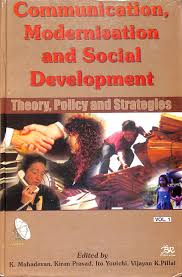
Health Strategies and Population Regulation. Yu Jing Yuan, Frederic Bourdier, M. Kabir, Vijayan K. Pillai, Kiran Prasad, Wu Junqing, S.Sivaraju and V.K.R. Kumar (Eds.) 2001. Vol.1&2. Delhi:B.R. Publishers.
Demography: The Science of Population. Weinstein, Jay and Vijayan K. Pillai. New Jersey: Allyn and Bacon. 2001.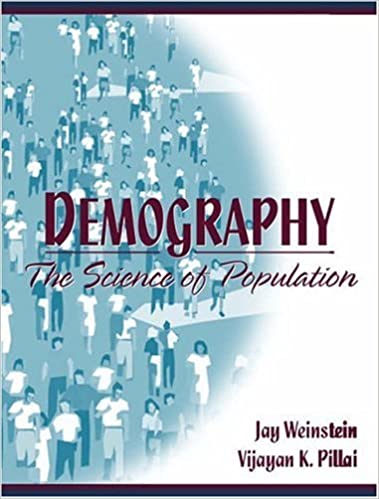
“This comprehensive, introductory text takes an applied, interdisciplinary approach. Because one author is a sociologist and the other a demographer, the text introduces perspectives from many different disciplines. The most applied book on the market, Demography: The Science of Population teaches students how to use the multitude of demographic resources available to them as consumers of data. Using case studies throughout to illustrate key concepts in a realistic and concrete manner, the authors also draw examples from recent U.S. Census data, United Nations and World Bank reports, tables from the National Center for Health Statistics, and other U.S. state- and county-level sources.
New to the Second Edition
This second edition is divided into four main parts; each part begins with a short introduction, and all chapters include end-of-chapter summaries. All tables, related narrative, and graphics have been updated to include data from the 2000 and 2010 census counts, more recent estimates for the United States—especially the American Community Survey—and comparable new data from international sources (e.g. World Bank, Population Research Bureau World Data Sheet). Several new figures have been added throughout the text.”
Challenges of Primary Education in Developing Countries: Insights from Kenya. Achola, Paul P P W and Vijayan K. Pillai. 2000. Aldershot: Ashgate Publishers.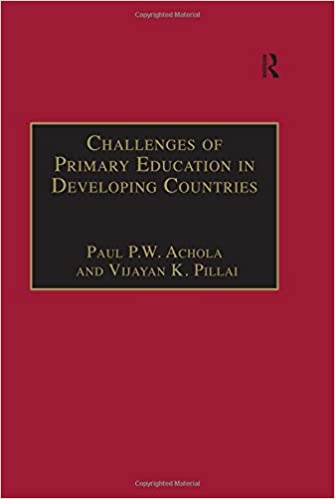
” Paul P.W. Achola and Vijayan K. Pillai address factors associated with wastage in primary school education and the solutions to ameliorate low participation in primary education. The book provides an examination of the factors associated with wastage, exploring the interconnectedness of non-enrollment, repetition and dropout. The authors demonstrate that reducing poverty through empowerment programs and citizen participation in school decisions are critical to improving primary school participation.”
Women’s Reproductive Rights in Developing Countries. Pillai, Vijayan K. and Guang-Zhen Wang. Aldershot: Ashgate Publishers, 1999.
“First published in 1999, this volume represents an empirical model of reproductive rights in developing countries. The model encompasses three explanations of reproductive rights. The first proposes that reproductive rights levels are negatively related to population growth. The second explanation argues that gender equality has a positive effect on reproductive rights. Finally, the authors propose that women’s education has a positive effect on reproductive rights. The empirical model takes into account the effects of modernization, secularization, and family planning program effort on population growth, women’s education, and gender equality.”
Welfare As We Know It: A Family-Level Analysis of AFDC Receipt. Barton, Thomas and Vijayan K. Pillai. Lewiston:Edwin Mellon Press, 1997.Developing Areas: A Book of Readings and Research. (Eds.), Pillai, Vijayan K. and Lyle Shannon London: Berg Publishers,1995
“This volume examines one of America’s most controversial anti-poverty programmes: Aid to Families with Dependent Children (AFDC). The authors use three years of data from two counties of Wisconsin to compile the study. The authors examine poverty, how families become and remain eligible for AFDC, how welfare can be studied using an Event History Analysis and programme analysis.”